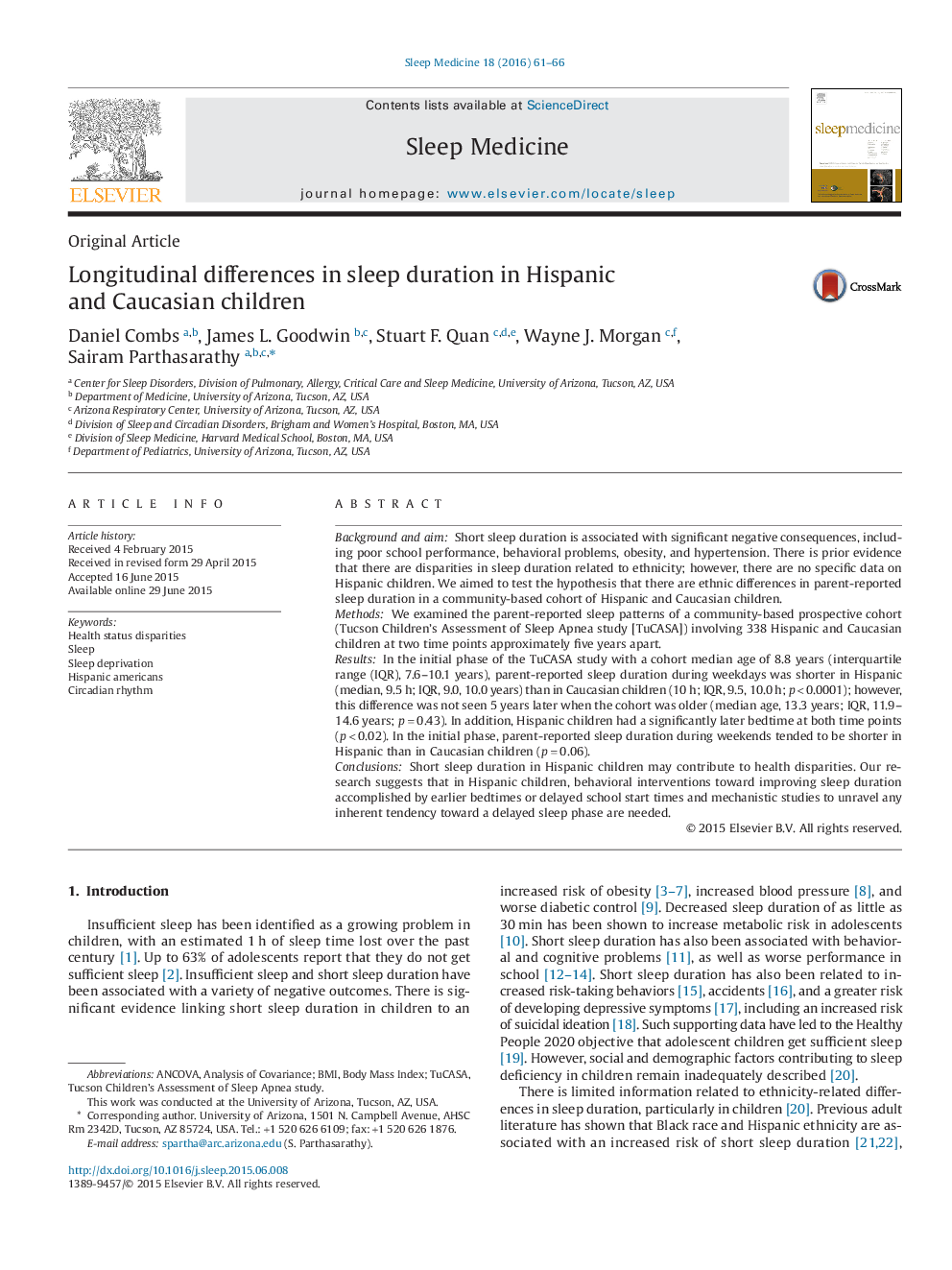| کد مقاله | کد نشریه | سال انتشار | مقاله انگلیسی | نسخه تمام متن |
|---|---|---|---|---|
| 3175839 | 1586490 | 2016 | 6 صفحه PDF | دانلود رایگان |
• Short sleep duration is associated with multiple adverse health effects in children.
• Hispanic children had a shorter sleep duration than Caucasian children at a young age.
• Five years later, there was no longer a difference in sleep duration between the groups.
• Hispanic children maintained a later bedtime at both time points.
Background and aimShort sleep duration is associated with significant negative consequences, including poor school performance, behavioral problems, obesity, and hypertension. There is prior evidence that there are disparities in sleep duration related to ethnicity; however, there are no specific data on Hispanic children. We aimed to test the hypothesis that there are ethnic differences in parent-reported sleep duration in a community-based cohort of Hispanic and Caucasian children.MethodsWe examined the parent-reported sleep patterns of a community-based prospective cohort (Tucson Children's Assessment of Sleep Apnea study [TuCASA]) involving 338 Hispanic and Caucasian children at two time points approximately five years apart.ResultsIn the initial phase of the TuCASA study with a cohort median age of 8.8 years (interquartile range (IQR), 7.6–10.1 years), parent-reported sleep duration during weekdays was shorter in Hispanic (median, 9.5 h; IQR, 9.0, 10.0 years) than in Caucasian children (10 h; IQR, 9.5, 10.0 h; p < 0.0001); however, this difference was not seen 5 years later when the cohort was older (median age, 13.3 years; IQR, 11.9–14.6 years; p = 0.43). In addition, Hispanic children had a significantly later bedtime at both time points (p < 0.02). In the initial phase, parent-reported sleep duration during weekends tended to be shorter in Hispanic than in Caucasian children (p = 0.06).ConclusionsShort sleep duration in Hispanic children may contribute to health disparities. Our research suggests that in Hispanic children, behavioral interventions toward improving sleep duration accomplished by earlier bedtimes or delayed school start times and mechanistic studies to unravel any inherent tendency toward a delayed sleep phase are needed.
Journal: Sleep Medicine - Volume 18, February 2016, Pages 61–66
